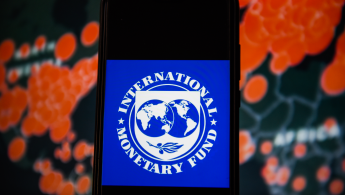Sudan scraps fuel subsidies in IMF-backed reform
Sudan has ended fuel subsidies as part of an IMF-backed reform programme, state media reported Wednesday, doubling pump prices at the risk of stoking popular discontent.
The decision, issued by the finance ministry late Tuesday, saw the price of petrol shoot up from 150 to 290 Sudanese pounds per litre, while diesel went up from 125 to 285 pounds.
"The prices will be subject to periodic review according to the dollar's indicative price," the state SUNA news agency reported.
The move will allow Sudan's government "to establish a mechanism for state institutions and the private sector to deal with international financial institutions," SUNA said.
It quoted the ministry as saying "the much-delayed" measure would save the government $1 billion a year and allow it to address "distortions to the economy".
It is the latest in a package of economic reforms that Sudan's transitional government promised to implement under an agreement it struck with the International Monetary Fund last year.
It has also carried out a managed float of the Sudanese pound to stem a rampant black market.
Before the ouster of longtime president Omar al-Bashir in April 2019, the economy was crippled by US sanctions and sapped by huge military spending on multiple conflicts in Sudan's far-flung regions.
The country's economic woes were the driving force behind the mass protests that led to Bashir's overthrow in a palace coup by the army.
More than two years on, many Sudanese still queue for hours to buy petrol or food. Households suffer from frequent power cuts, while bottles of cooking gas are often hard to find.
The transitional government hopes the tough reforms it is adopting will help it qualify for an IMF debt relief initiative that would settle its $60 billion debt.





 Follow the Middle East's top stories in English at The New Arab on Google News
Follow the Middle East's top stories in English at The New Arab on Google News
![The UAE is widely suspected of arming the RSF militia [Getty]](/sites/default/files/styles/image_330x185/public/2024-11/GettyImages-472529908.jpg?h=69f2b9d0&itok=Yauw3YTG)
![Netanyahu furiously denounced the ICC [Getty]](/sites/default/files/styles/image_330x185/public/2024-11/GettyImages-2169352575.jpg?h=199d8c1f&itok=-vRiruf5)
![Both Hamas and the Palestinian Authority welcomed the ICC arrest warrants [Getty]](/sites/default/files/styles/image_330x185/public/2024-11/GettyImages-2178351173.jpg?h=199d8c1f&itok=TV858iVg)